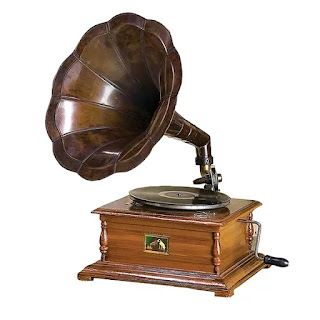For as long as I can remember, music has been a part of my life. It gets me through the good times and the bad. In this day and age, music is completely accessible almost anywhere on almost every platform available. There was a time, when this wasn't the case. Music used to be something that if you wanted to hear, you either had to play it yourself or use a record player with vinyl or using cassette tapes.
American physicist, James Russell wanted to change this. Russell was born in 1931 in Bremerton, Washington. He was a very smart man and even from a young age he was working on extremely innovative projects. He graduated in Portland with a bachelor's degree in physics from Reed College. Russell absolutely loved listening to music, but, overtime, he began to become annoyed at how easily the vinyl could break. He wished there was something out there that could play music and not break so easily. Russell decided that he was going to be the one to change this. At first, he tried to fix the record player itself. In his mind, maybe the reason the record player broke so easily was because of the player itself. He discovered that the record player was harsh on the vinyl and he decided that it would be better to have some sort of player that wouldn't have to physically touch the record.
He figured out that if he could get a light to read the music, the record would not get damaged so fast or so easily. Russell then took it a step farther. Vinyl records were so big and bulky; he wanted to see if he could create something a bit smaller; that's when the compact disc, otherwise known as the CD, was born. The CD was created in 1979 but was only released to the public in 1982. The CD he created was a thin disc that could hold up to 80 minutes of music. These discs could be played in special CD players and you could skip around to different songs in different orders. The first commercialized CD player was put out into the world by Sony in 1982. Even portable CD players were created shortly after. It was the first time in history where people could actually take their music with them. It was unprecedented.
CDS, like all new inventions, had both positive and negative impacts and influences on the world. One positive is that it made listening to music more accessible and easier for consumers. People could skip around and listen to different songs on the CD which was not possible with a cassette tape or vinyl. Another positive is that it allowed for musicians to actually get their music out there and promote it more than they had ever been able to do. They began to build strong fan bases and could release special edition CDs to more connect with consumers. Fun fact, the first CD was a 1982 album by Abba called The Visitors.
There are also some negative impacts. For example, CDs can't be recycled. CDs themselves are made up of too many materials that make it extremely difficult to separate to recycle. Also, CDs come in cases made from polycarbonate which isn't recyclable either. People also began to discover that CDs were not as indestructible as they once thought. CDs could break or mess up due to lots of things like direct exposure to sunlight and heat, scratches, drastic change in temperature, gravity, and fingerprints and smudges. Because of this, many CDs ended up sitting in landfills helping to further pollute the Earth.
Despite the pros and cons, CDs were extremely influential in creating the music streaming services we have today. Because of these even newer platforms like Spotify and Apple Music, CDs are becoming less and less popular. Now people don't have to buy a full album. They can pick and choose songs to listen to each album. These platforms don't require you to carry a player around; all you need is your cell phone. In fact, because of this, CD sales drop every year by about 10 million.
Now, CDs are out and online streaming platforms are in. It's going to be very interesting to see what music innovation comes out next. I can't imagine what else people could come up with, but I am very excited to find out.









No comments:
Post a Comment